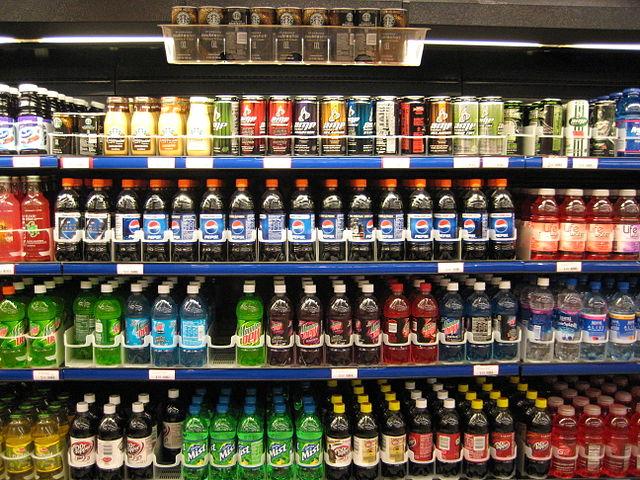Bloomberg’s New York sugary drink ban blocked in court
The ban struck down this week would’ve only limited the size of sugary drinks to 16-ounces at certain places. (Photo by Marlith via Wikimedia Commons.)
A judge this week struck down a New York City ban on the sale of sugar-filled sodas and coffees that had been a signature issue for Mayor Michael Bloomberg.
The ban would have limited the size of sugary drinks at restaurants, theaters and food carts to 16 ounces.
The New York Times reports that Bloomberg has already indicated he will appeal.
David Ropeik, an environmental management instructor at Harvard University, says Bloomberg’s ban only targeted one kind of sugar and mirrored a similar effort from the 1970s.
“In the 70s there was a push back against sugar … the sucrose from cane and beets, so the manufacturers replaced it with — high fructose corn syrup in response to public concern,” he said.
Most experts today, however, say, the rate at which fructose and sucrose hit the liver and how they’re consumed through eating or drinking, are equivalent, Ropeik said.
In the ruling, the judge said Bloomberg’s ban was “arbitrary and capricious,” because it didn’t include other sugary drinks, such as fruit juice.
“We target one form of sugar and we forget the other one and it’s doing us the same kind of harm in excess,” Ropeik said. “The problem here is the selective perception of risk may not be the smartest way to make policy.”
A report from the United States Department of Agriculture, found prune juice to be more sugary than Coca-Cola and orange juice, Ropeik said. But unlike prune juice, all you get from sugary soda drinks is sugar.
There are factors, other than sugar, that go into obesity: behavior, genes and the availability of food, Ropeik said. And the government intervenes to protect us from what we cannot protect ourselves from.
“Should the science become far more conclusive than it already is, society would have to weigh whether the behavior of some is putting the greater society at either a physical or economic risk, and act,” he said.
Every day, reporters and producers at The World are hard at work bringing you human-centered news from across the globe. But we can’t do it without you. We need your support to ensure we can continue this work for another year.
Make a gift today, and you’ll help us unlock a matching gift of $67,000!
